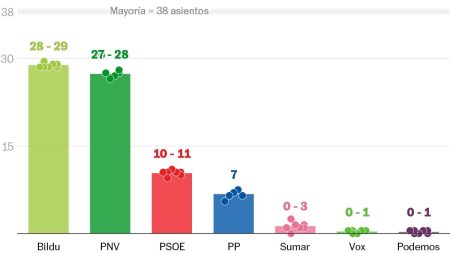The Government of Spain, led by Prime Minister Pedro Sánchez, has rejected the proposal for a referendum on Catalonian independence put forward by the President of the Generalitat, Pere Aragonès. The Minister Spokesperson of the Government, Pilar Alegría, emphatically stated “No and no. Absolutely not” in response to the idea of holding a referendum in Catalonia, just five weeks before the upcoming elections on May 12th. The Government does not see the proposal as part of its agenda and believes there are still three and a half years left in the legislature to address other policy issues.
The proposal for a referendum has dominated the national political agenda on Tuesday, with Aragonès insisting on the need for a referendum on Catalonian independence. The President of the Generalitat suggested a referendum organized in agreement with the central government and limited to Catalonia, following international standards. Aragonès even announced the proposed question for the ballot: “Do you want Catalonia to be an independent state?” with two possible responses: yes or no. This proposal stemmed from a report by the Institute of Self-Government Studies of the Generalitat, exploring different scenarios for a referendum beyond just independence.
Aragonès believes that the most feasible way to hold the referendum would be under Article 92 of the Spanish Constitution, which allows for consultative referendums on important political decisions with prior authorization. The first political reaction to the proposal came from the Popular Party (PP), who filed a complaint with the Electoral Board regarding Aragonès’ appearance before the election period. The PP criticized the President of the Generalitat for compromising the neutrality that public authorities should maintain during elections. The PP leader, Alberto Núñez Feijóo, called on Prime Minister Sánchez to reject the referendum proposal.
Following Aragonès’ announcement, the Minister Spokesperson, Pilar Alegría, reiterated the Government’s position against the referendum during a press conference after the Council of Ministers meeting. She emphasized the importance of the upcoming elections in Catalonia on May 12th and the Government’s commitment to dialogue with various political groups in the region. Alegría highlighted the positive outcomes of previous dialogues and legislation passed through constructive dialogue. The Government’s stance remains firmly opposed to the referendum proposal, aligning with the majority opinion in Catalan society.
In conclusion, the proposal for a referendum on Catalonian independence has stirred up political debate in Spain, with the Government staunchly rejecting the idea and emphasizing the importance of the upcoming elections in Catalonia. The President of the Generalitat, Pere Aragonès, has called for a referendum organized in agreement with the central government, but faces opposition from the ruling party and other political groups. The dispute over the referendum proposal highlights the ongoing tensions between the central government and regional authorities in the context of Catalonia’s push for independence.
















